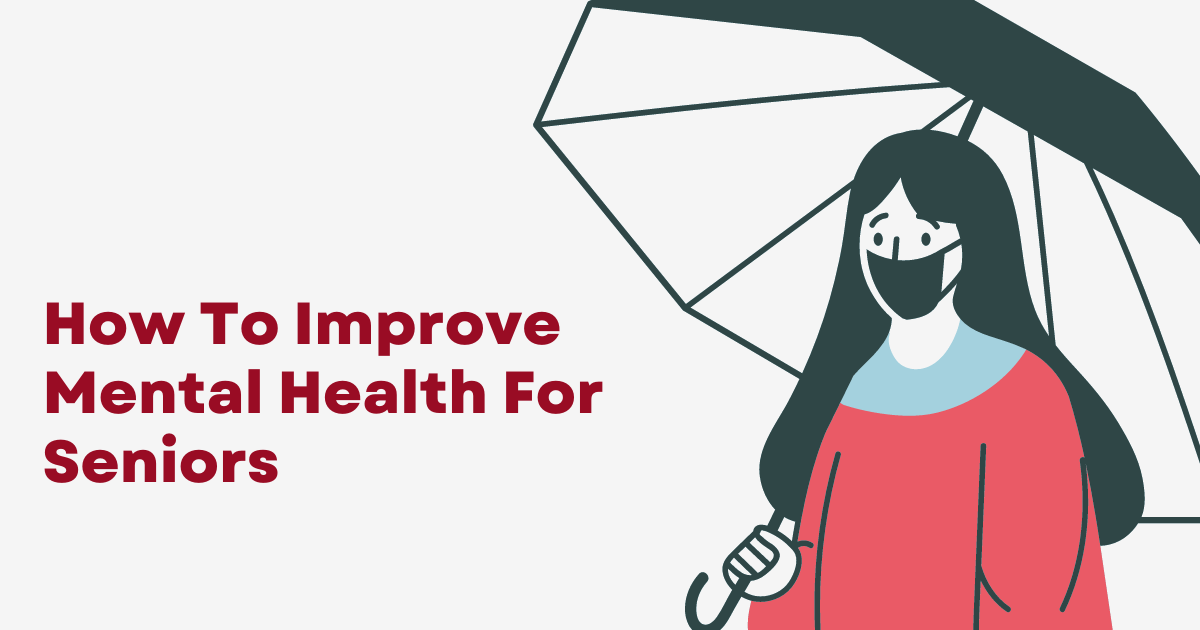As people enter their later years, it is important how to improve mental health for seniors. Keeping mentally healthy becomes increasingly important for their overall well-being. Aging brings its own set of challenges, from health issues to changes in social circles, which can affect mental health. In this article, we’ll discuss practical ways seniors can boost their mental well-being and enjoy life to the fullest.
Remember: “Wellness is a journey, not a destination.”
How To Improve Mental Health For Seniors
Building Social Connections: Beating Loneliness
Feeling lonely is a common issue for seniors, especially for those living alone or in care facilities.
Tips for Better Social Connections:
– Get involved in community activities, social welfare work or clubs.
– Stay in touch with family and friends through regular calls or visits.
– Volunteer for local causes or charities.
– Consider joining senior centers or support groups for more social interaction.
Staying Active: Improving Mood and Brainpower
Regular physical activity isn’t just good for the body; it also boosts mood, cognitive function, and overall mental well-being for seniors.
Ways to Stay Active:
– Take daily walks or do gentle exercises.
– Join a senior fitness class or try yoga.
– Gardening and dancing are enjoyable ways to keep moving.
– Talk to a healthcare provider for exercise advice tailored to you.
Eating Right: Fueling Body and Mind
A balanced diet packed with essential nutrients is vital for seniors’ mental health and overall wellness. Good nutrition supports cognitive function, mood, and energy levels.
Healthy Eating Tips for Seniors:
-Include lots of fruits, vegetables, whole grains, lean proteins and healthy fats in your diet on a daily basis.
– Stay hydrated by drinking enough water.
– Cut down on sugar, salt.
How To Improve Mental Health For Seniors
Keeping Mentally Sharp: Stimulating the Brain
Engaging in mentally stimulating activities helps seniors maintain cognitive function, memory, and mental sharpness. From puzzles to learning new skills, there are many ways to keep the mind active.
Brain-Boosting Activities:
– Solve crossword puzzles, play games, or use brain-training apps.
– Learn a new language, musical instrument, or try arts and crafts.
– Read books, pursue hobbies, or take classes.
– Stay curious and open-minded to keep challenging yourself mentally.
Getting Professional Help: Mental Health Support
For seniors dealing with ongoing mental health issues, seeking professional support is crucial. Mental health professionals can provide therapy, counseling, and strategies to manage mental health concerns effectively.
Where to Find Mental Health Support:
– Reach out to a therapist, psychologist, or counselor for individual or group therapy.
– Consider joining support groups focused on seniors’ mental health.
– Consult a geriatric psychiatrist for specialized care.
– Explore tele health options for convenient access to mental health services.
Conclusion
In summary, prioritizing mental health is essential for seniors to live a fulfilling and balanced life. By nurturing social connections, staying physically active, eating well, stimulating the mind, and seeking help when needed, seniors can enhance their overall well-being and enjoy a vibrant lifestyle. Remember, mental health is a lifelong journey that requires care and attention, leading to a happier and healthier life.
Also Read: How To Improve Mental Health For Students
Also Read: How To Improve Mental Health For Working Professionals
